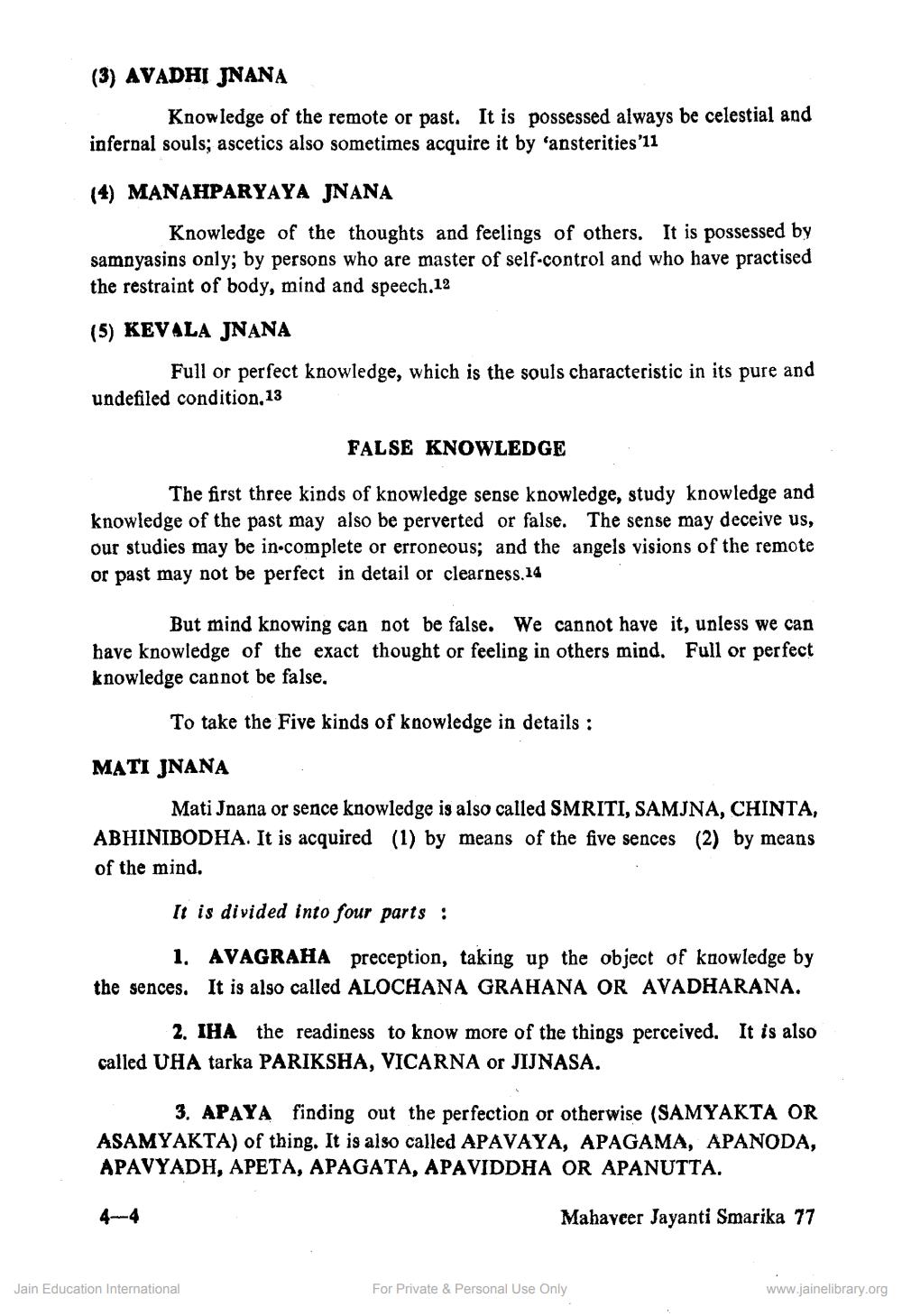________________
(3) AVADHI JNANA
Knowledge of the remote or past. It is possessed always be celestial and infernal souls; ascetics also sometimes acquire it by 'ansterities'11
(4) MANAHPARYAYA JNANA
Knowledge of the thoughts and feelings of others. It is possessed by samnyasins only; by persons who are master of self-control and who have practised the restraint of body, mind and speech.12
(5) KEVALA JNANA
Full or perfect knowledge, which is the souls characteristic in its pure and undefiled condition.13
FALSE KNOWLEDGE
The first three kinds of knowledge sense knowledge, study knowledge and knowledge of the past may also be perverted or false. The sense may deceive us, our studies may be in-complete or erroneous; and the angels visions of the remote or past may not be perfect in detail or clearness.14
But mind knowing can not be false. We cannot have it, unless we can have knowledge of the exact thought or feeling in others mind. Full or perfect knowledge cannot be false.
To take the Five kinds of knowledge in details :
MATI JNANA
Mati Jnana or sence knowledge is also called SMRITI, SAMJNA, CHINTA, ABHINIBODHA. It is acquired (1) by means of the five sences (2) by means of the mind.
It is divided into four parts:
1. AVAGRAHA preception, taking up the object of knowledge by the sences. It is also called ALOCHANA GRAHANA OR AVADHARANA.
2. IHA the readiness to know more of the things perceived. It is also called UHA tarka PARIKSHA, VICARNA or JIJNASA.
3. APAYA finding out the perfection or otherwise (SAMYAKTA OR ASAMYAKTA) of thing. It is also called APAVAYA, APAGAMA, APANODA, APAVYADH, APETA, APAGATA, APAVIDDHA OR APANUTTA.
Mahaveer Jayanti Smarika 77
4-4
Jain Education International
For Private & Personal Use Only
www.jainelibrary.org




